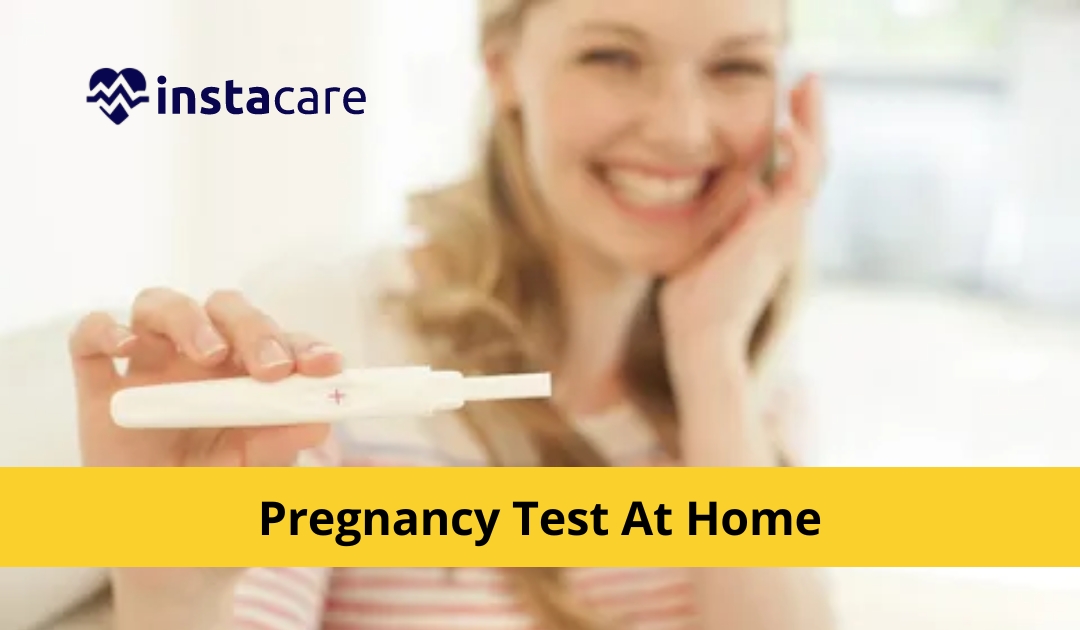A pregnancy test looks for a specific hormone in your urine or blood to determine pregnancy. The hormone is known as human chorionic gonadotropin (hcg). Hcg is created in a woman's placenta when a fertilized egg implants in the uterus.
What does a pregnancy test serve?
If you suspect you are pregnant, you may require this test. Pregnancy symptoms differ from woman to woman, but the most frequent indicator of early pregnancy is a missing period. Other typical pregnant symptoms include:
- Fatigue
- Breasts are swollen and painful.
- Urine frequency feeling bloated in the abdomen
What are the various kinds of pregnancy tests?
Pregnancy tests are classified into two categories.
- Urine test
- Blood test
Pregnancy test at home
A urine pregnancy test can identify the hcg hormone around a week after you've missed a period. Because these tests are essentially the same, many women prefer a home pregnancy test before consulting with a professional. When performed correctly, home pregnancy tests are 97-99 percent trustworthy. You must be wondering how to test for pregnancy at home. Here are some simple home pregnancy tests that require only a few items.
- Dandelion leaves pregnancy test
- Salt pregnancy test
- Mustard powder pregnancy test
- Storing urine pregnancy test
- Wheat & barley pregnancy test
- Sugar pregnancy test
View More: High-Risk Pregnancy - Everything You Need to Know
Pregnancy test procedures
A home pregnancy test kit or test tube is available without a prescription at your local pharmacy. The majority are affordable and straightforward to use. A dipstick is a device commonly used in home pregnancy testing. Some feature a collecting cup as well. Your home test may comprise the following or related processes:
- Take the test when you urinate for the first time in the day. The test may be more accurate in the morning since urine contains more hcg.
- Hold the dipstick for 5 to 10 seconds in urine stream.
- If your kit includes a collecting cup, urinate and insert the dipstick for 5 to 10 seconds.
- After a few minutes, the dipstick will reveal your results.
- The time it also takes to get results and how the findings are displayed will differ depending on the test kit manufacturer.
- Your pregnancy test kit will provide instructions on how to read your findings, including a window or other place that displays a plus or minus sign, one or two lines, or the phrases "not pregnant" or "pregnant."
Negative outcome: not pregnant
Only one color band is on the upper control (c) area. There should be no discernible band on the test (t) region. The control line is intended to confirm the test and should be bright and visible against the white backdrop.
Positive outcome: pregnant
The color bands in the control (c) and test (t) portions are distinct and consistent. The color intensity of the bands varies according to the concentration and amount of hcg development. The trend of the rising strength of the test line, rather than any one result, is a significantly more robust predictor of pregnancy.
How can you be sure your pregnancy test results are correct?
- Take a clean container for the urine sample.
- The first pee of the day will show significant amounts of hcg.
- Make sure you collect a considerable volume of pee. If it is higher, you may get accurate test results.
- Wait for the reaction once you've taken the test. This procedure might take up to ten minutes.
- If you are still waiting to receive the correct results, feel free to retake them.
Is there any danger in the test?
There are no known risks associated with getting a urine test. A blood test is relatively safe.
View More: 10 Best Foods To Eat During Pregnancy For A Healthy Baby
Conclusion
A pregnancy blood test is conducted at the office of a health care practitioner. It can detect lower amounts of hcg and confirm or rule out pregnancy earlier than a urine test. A blood test can detect pregnancy even if you haven't missed a period. Pregnancy blood tests are nearly 100% accurate. A blood test is commonly used to validate the results of a home pregnancy test.
Please book an appointment with the best Gynecologist in Lahore, Karachi, Islamabad, and all major cities of Pakistan through InstaCare, or call our helpline at 02137136090 to find the verified doctor for your disease.











